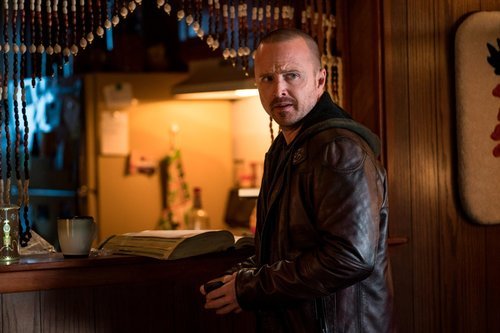For ‘Breaking Bad’ and ‘Downton Abbey,’ ‘the end’ wasn’t

For “Breaking Bad” and “Downton Abbey,” it turns out “The end” wasn’t. In fact, with a robust appetite for content based on established titles, it’s increasingly just the beginning.
There was no reason to clamor for more “Breaking Bad” after the finale in 2013, which brought closure and a measure of redemption to the central character — and more than 10 million viewers to AMC. Ditto for “Downton Abbey,” which didn’t tie up every loose end but set up enough happily ever afters to leave a solid sense of satisfaction.
These days, however, nothing that’s popular can be assured of resting in peace. All of which explains why “El Camino: A Breaking Bad Movie” cruises into select theaters and onto Netflix this weekend, a mere three weeks after “Downton Abbey” topped the box-office, amassing nearly $140 million worldwide thus far.
To the extent series finales are generally designed to close the books on shows, these zombie spinoffs — returning from the dead, as they are — can require considerable creativity.
Not everything lends itself to revivals, and there are challenges reassembling casts, especially for the longer commitments associated with series. (Even Fox’s recent “BH90210” return was billed as an event and ran a mere seven episodes.)
Small wonder that many familiar titles have resorted to prequels, from “The Sopranos” movie that’s due next year to HBO’s planned “Game of Thrones” spinoffs.
Movies offer another way to potentially cash in on nostalgia, while attracting talent with less demanding production schedules. “El Camino” stars Aaron Paul, who played Jesse Pinkman, and picks up after the events in the original series. (“Better Call Saul,” which currently airs on AMC, is a prequel to the flagship show.)
Speaking of zombies, “The Walking Dead” coyly jettisoned the Rick Grimes character, before announcing that star Andrew Lincoln would continue playing him in a series of movies intended to further expand that franchise.
The longer the lapse, theoretically, the greater the nostalgia factor, although producers have sometimes waited too long to bring back properties. A second “The X-Files” movie, subtitled “I Want to Believe,” landed with a dull thud in 2008, grossing a little over $20 million in the U.S.
What seems apparent is that most of these trips into the way-back machine are easier to justify commercially than creatively. It’s difficult enough to meet the expectations raised by ending a hit series, without digging it up and trying to stick the landing again.
“Downton Abbey” enjoyed widespread critical praise on PBS, but the movie received notably mixed reviews. Los Angeles Times columnist Mary McNamara summed up the larger conundrum, writing, “Why, in this age of cinematic television, and after such debacles as the ‘Sex and the City’ movies, ‘The X-Files’ and (shudder) ‘The Powerpuff Girls,’ why do we keep tacking movies onto the end of perfectly good television shows?
“Answer: Because the fans.”
Indeed, as long as fans exhibit a willingness to ante up for the initial rush of recognition that these projects provide, producers and studios will eagerly seek to fill the void.
As for the creative hurdles that raises, it remains to be seen whether “El Camino” has the right formula to clear them. But either way, it’s further evidence that when future finales say “The End,” the unspoken disclaimer, going forward, is “For Now.”
“El Camino: A Breaking Bad Movie” premieres Oct. 11 on Netflix and in select theaters.


